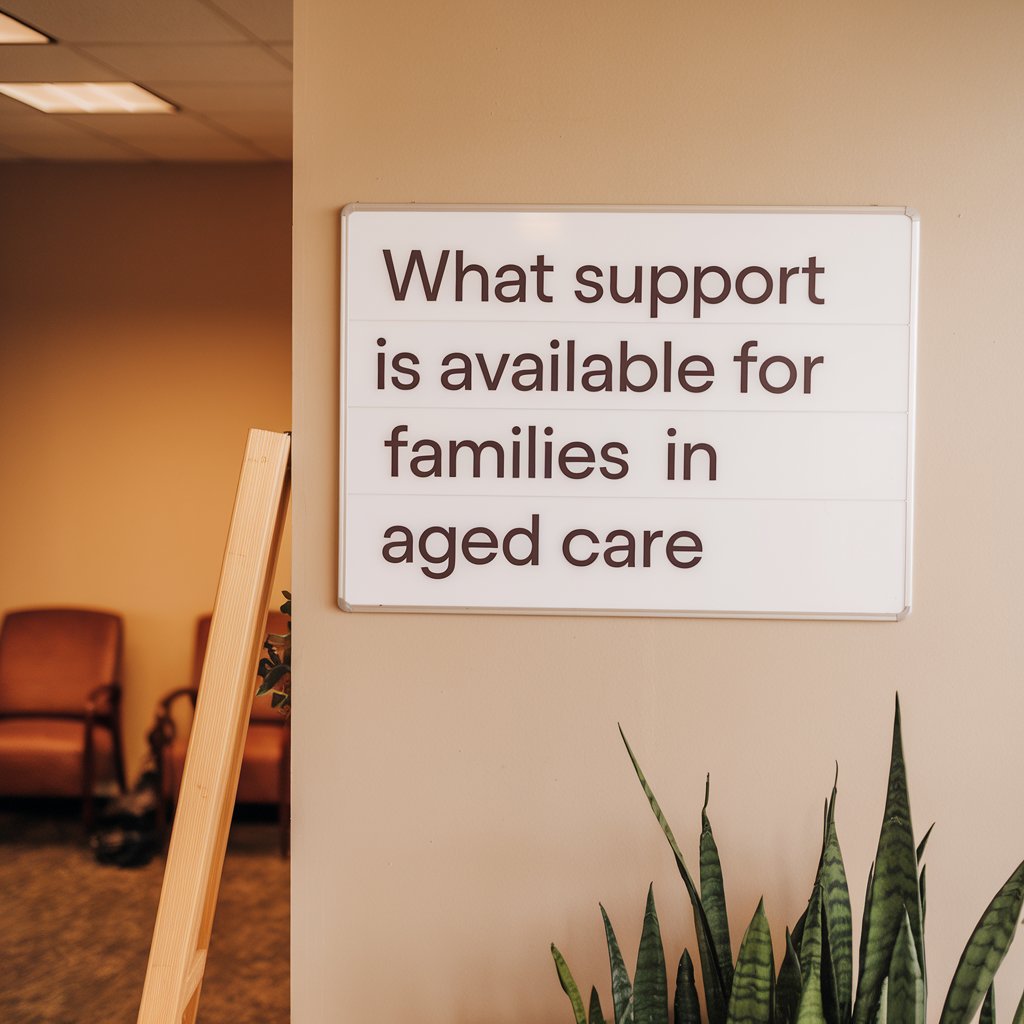Caring for an elderly loved one in an aged care facility is a significant decision that comes with many challenges and emotional complexities. As families navigate this journey, understanding the support options available can ease the process and ensure the best care for their loved ones.
This article explores the various types of support available for families in aged care, including financial assistance, emotional support, and practical resources.
1. Financial Assistance
Government Funding and Subsidies
- Aged Care Subsidies: In many countries, the government provides financial support to help cover the costs of aged care. In Australia, for example, the government offers subsidies to help with residential and at home care services costs. These subsidies are means-tested and can significantly reduce the out-of-pocket expenses for families.
- Veterans’ Benefits: Veterans and their families may be eligible for additional financial support through veteran-specific programs. These benefits can include subsidized aged care services and financial assistance for specific needs.
Care Fees and Funding Options
- Home Care Packages: For those opting for home care, government-funded Home Care Packages are available. These packages provide financial support for a range of services, including personal care, domestic assistance, and respite care. The level of funding depends on the assessed needs of the individual.
- Aged Care Loans and Payment Plans: Some families may consider loans or payment plans to manage the costs of aged care. These financial products are designed to help families spread the cost of care over time, making it more manageable.
2. Emotional Support
Counseling and Psychological Support
- Family Counseling: Transitioning a loved one to aged care Melbourne can be emotionally challenging for families. Family counseling services can provide support to help family members cope with the emotional aspects of this transition and improve communication and relationships.
- Individual Therapy: For those struggling with the stress and emotions related to aged care, individual therapy can offer a safe space to explore feelings, manage stress, and develop coping strategies.
Support Groups
- Aged Care Support Groups: Many communities offer support groups specifically for families of individuals in aged care. These groups provide a space for sharing experiences, gaining insights, and receiving emotional support from others who are going through similar situations.
- Online Forums and Communities: Online forums and social media groups can also offer valuable support and information. These platforms allow families to connect with others, share resources, and find comfort and advice.
3. Practical Resources
Information and Guidance
- Aged Care Assessment: An Aged Care Assessment Team (ACAT) or similar organization can provide a comprehensive assessment of an individual’s needs and recommend appropriate care options. This assessment is crucial in determining eligibility for various types of care and funding.
- Consumer Advocacy Services: Independent consumer advocacy services can help families navigate the aged care system, understand their rights, and address any concerns or complaints about the care provided.
Respite Care
- Short-Term Respite: Respite care services offer temporary relief for family caregivers by providing short-term care for their loved ones. This can be in the form of in-home respite services or temporary stays in aged care facilities, allowing caregivers to rest and recharge.
- Emergency Respite: In cases of sudden or unexpected need, emergency respite services are available to provide immediate care and support. These services can be vital for families facing unforeseen circumstances.
Care Coordination
- Care Managers: Some aged care facilities offer care managers who coordinate and oversee the care provided to residents. They act as a point of contact for families, addressing concerns, managing care plans, and ensuring that the needs of the resident are met.
- Case Management Services: Case managers can assist families in navigating the complexities of the aged care system, coordinating services, and accessing resources. They help families understand their options and make informed decisions about care.
4. Legal and Advocacy Support
Legal Advice and Planning
- Elder Law Services: Legal issues related to aged care, such as power of attorney, guardianship, and estate planning, require specialized advice. Elder law services can assist families in making legal arrangements to ensure the well-being and wishes of their loved ones are respected.
- Wills and Estate Planning: Proper estate planning is essential for managing the financial and legal aspects of aged care. Consulting with legal professionals can help families create or update wills, establish trusts, and make other important legal decisions.
Advocacy Organizations
- Consumer Advocacy Groups: There are various advocacy organizations dedicated to protecting the rights of aged care recipients and their families. These organizations provide support, information, and advocacy services to ensure that individuals receive quality care and are treated fairly.
- Ombudsman Services: An ombudsman can investigate complaints and issues related to aged care services. They provide an independent review and resolution of concerns, offering families a recourse if they feel that care standards are not being met.
5. Educational Resources
Workshops and Seminars
- Education Programs: Many communities and aged care facilities offer workshops and seminars on topics related to aged care. These programs can provide valuable information on managing care, understanding the aged care system, and supporting family caregivers.
- Online Resources: There are numerous online resources, including webinars, articles, and guides, that offer information and advice on aged care. These resources can help families stay informed and make educated decisions about care options.
Training for Caregivers
- Caregiver Training: Training programs for family caregivers can equip them with skills and knowledge to provide effective care. These programs cover topics such as managing medications, providing personal care, and dealing with specific health conditions.
Navigating the Aged Care Journey with Comprehensive Support
The transition to aged care can be a complex and emotional journey for families, but various types of support are available to ease the process. From financial assistance and emotional support to practical resources and legal advice, understanding and accessing these supports can significantly benefit families navigating the aged care system.
By leveraging these resources, families can ensure that their loved ones receive quality care while managing their own well-being and challenges effectively.




